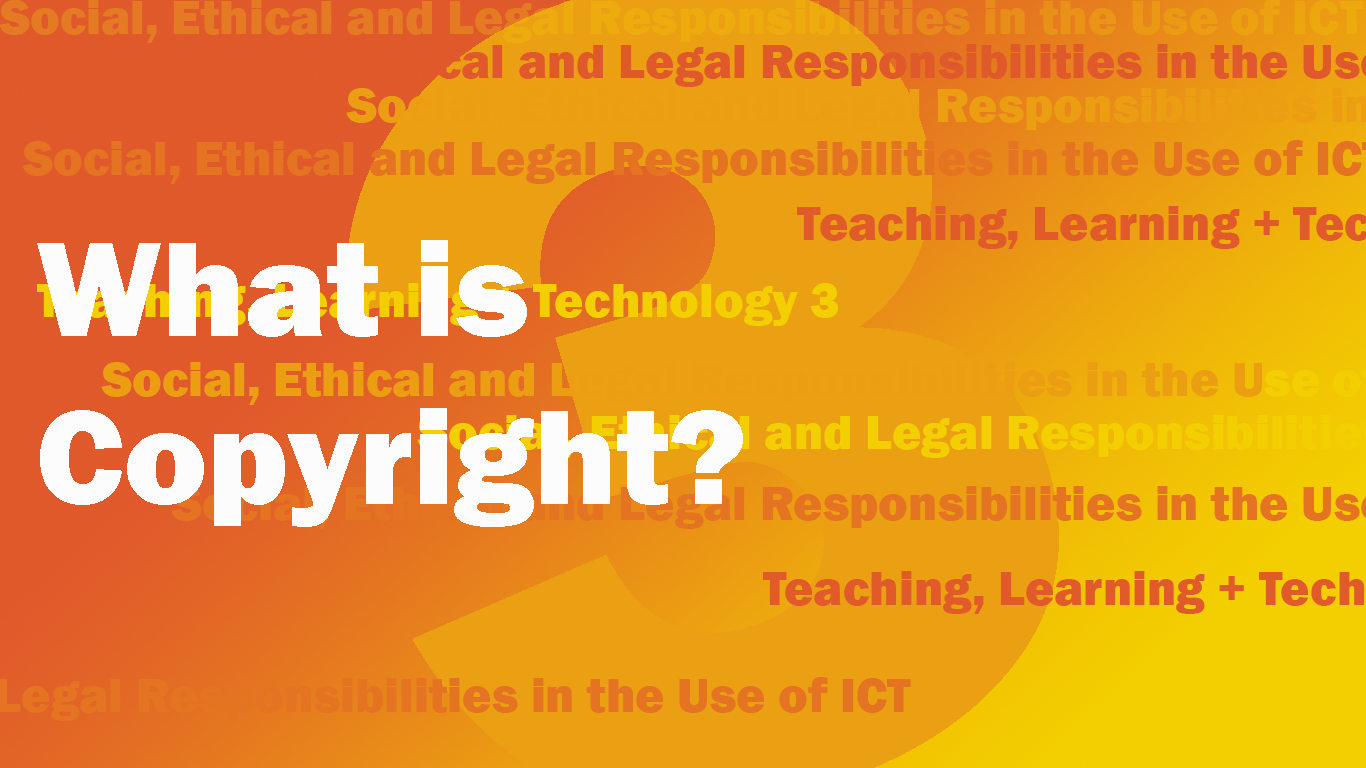What is Copyright?
Have you ever written something original of your own? Do you realise that you own the copyright to everything that you write? While many of you studying this course may answer “yes” to both questions, you might have unanswered questions about copyright in the context of writing educational materials.

Have you ever written something original of your own? Do you realise that you own the copyright to everything that you write? While many of you studying this course may answer “yes” to both questions, you might have unanswered questions about copyright in the context of writing educational materials. Knowledge of copyright is essential for everyone who develops learning materials or is in the writing profession, particularly to avoid committing copyright infringement. With the emergence of OER, understanding copyright has become especially important, as you can use learning materials produced by others if they are made available under an open licence.
Copyright is an exclusive, transferable right given by law to a creator/author for a fixed number of years to copy, print, publish, perform, film, record or otherwise control the use of literary, musical, dramatic or artistic works. Copyright is a legal protection given to the original creator of a work, which may be in any form. In this context, “work” means an explicit description or expression of an idea, not just the ideas themselves; the law only protects the specific and original expression of ideas.
![]()
Although copyright law varies by jurisdiction, there is generally a clause that makes special permission for “fair use” or “fair dealing”; normally, this allows a written work (for example) to be copied for the purpose of private study, research, book review, reporting and similar non-commercial uses. Fair use does not give permission to use copyrighted materials in full. Moreover, the extent of the use is limited and not clear, which can lead to litigation. Normally ownership of the intellectual property of an article or book resides with the author, except when the author’s employer claims ownership under the conditions of employment. This may be the case when teachers are employed by universities to write learning content. However, works for hire are handled differently in various institutions. As long as the copyright of a work remains with the author, legally the author can undertake economic activity associated with the work. This economic right introduces conflict when certain types of works are developed using public funds. The issue of the “moral rights” related to the work arises when the right of the work is with the employer or the funding agency. The existing copyright licensing system is problematic for educators. It is very restrictive and legally limits what resources a teacher can use in the classroom and what a student can use to support learning and demonstrate competence. It was to overcome this set of problems that the idea of OER emerged, a concept made possible by the creation of an alternative: open licensing systems.
For a detailed understanding of the history and development of copyright, see Introducing Copyright, by Julien Hoffman.